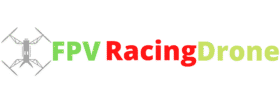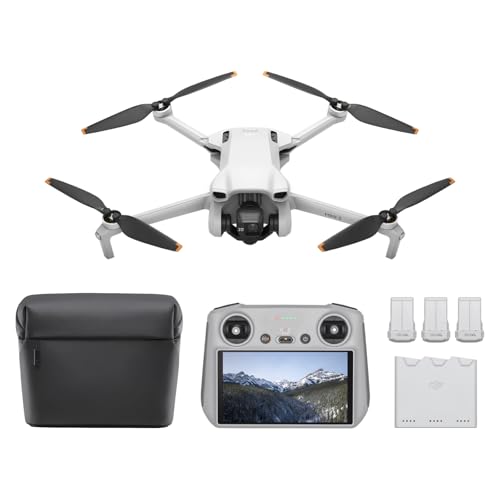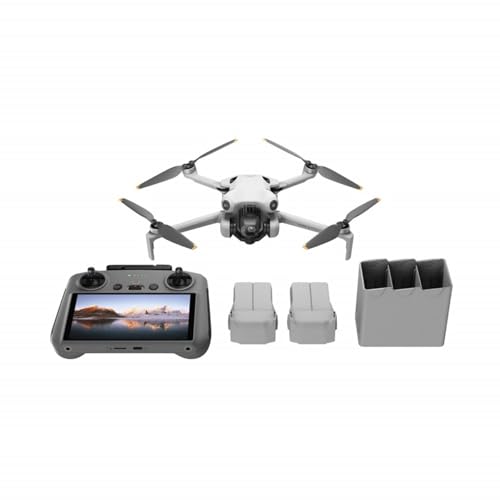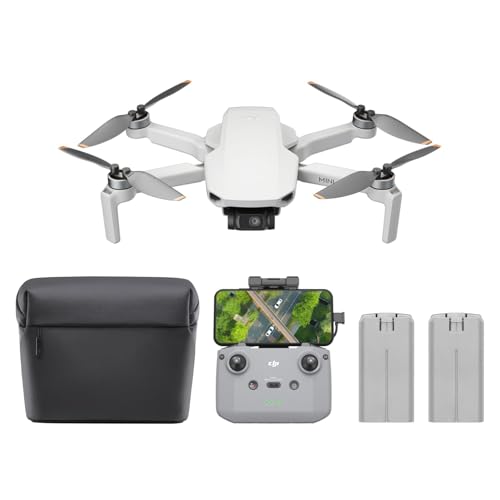Tired of scaling slippery ladders or spending hours meticulously inspecting every shingle? Welcome to the future of property assessment! Drones have revolutionized how roofing professionals, contractors, and even savvy homeowners approach roof inspections. They offer a safer, faster, and incredibly detailed way to spot potential damage, assess structural integrity, and streamline your workflow.
But with so many options out there, how do you pick the best drone for roofing inspections? It’s not just about a high-res camera; you need stability, reliable flight time, ease of use, and features that can truly make a difference. We’ve done the legwork for you, diving deep into the market to bring you our top 10 picks. Let’s get your aerial inspection game soaring!
Why Use a Drone for Your Roofing Inspections?
Gone are the days when a simple visual inspection from the ground or a precarious climb was your only option. Drones bring a host of benefits:
- Enhanced Safety: Keep your feet firmly on the ground, eliminating risks associated with heights and slippery surfaces.
- Speed & Efficiency: A full roof scan can take minutes, not hours, allowing you to cover more properties in less time.
- Detailed Imagery: High-resolution cameras capture incredibly clear photos and videos, perfect for identifying subtle roof damage, missing shingles, or blocked gutters.
- Cost Savings: Reduce labor costs and insurance premiums associated with manual inspections.
- Documentation: Create thorough, verifiable records for clients, insurance claims, or future reference.
- Access to Difficult Areas: Reach awkward spots, steep pitches, or high-rise roofs that are otherwise challenging or impossible to access manually.
Top 10 Drones for Roofing Inspections
Let’s dive into our detailed reviews, helping you find the perfect aerial companion for your roof surveying needs.
1. DJI Mini 4K Camera Drone Combo

The DJI Mini 4K combo offers an excellent entry point for those seeking a highly portable and capable drone for basic roofing inspections. Its lightweight design means no FAA registration is required for recreational use (though always check local regulations for commercial operations!), making it incredibly convenient. The stunning 4K UHD camera with a 3-axis gimbal ensures you capture stable, crystal-clear footage, crucial for pinpointing even the smallest signs of roof damage. With impressive wind resistance and up to 93 minutes of flight time across three batteries in this combo, you’ll have plenty of aerial duration for multiple property assessments.
Key Features:
– No FAA registration needed (under 249g for recreational use)
– 4K Ultra HD camera with 3-axis gimbal for cinematic stability
– 38kph (Level 5) wind resistance
– 10km Max HD Video Transmission
– Up to 93 minutes total flight time (with 3-battery set)
– Beginner-friendly with GPS Return to Home (RTH) and stable hovering
– Includes DJI Mini 4K, 2 batteries, remote controller, shoulder bag, and more
Pros:
– Extremely portable and lightweight
– Excellent camera stability and resolution for detailed visual inspection
– Long flight time with multiple batteries in the combo
– Strong wind resistance for stable outdoor operation
– Great value for its features and DJI reliability
Cons:
– DJI Fly app requires direct download from DJI website for Android users
– May lack advanced obstacle avoidance found in higher-end models
– Limited payload capacity
User Impressions: Customers love the Mini 4K for its incredible portability and ease of use. Many note the video quality is fantastic for its size and price, making it a powerful tool for quick and effective aerial inspection tasks without breaking the bank. The extended battery life from the combo pack is frequently praised.
2. DJI Mini 4K, Drone with 4K UHD Camera for Adults

This version of the DJI Mini 4K is perfect for those who want the core capabilities without the extra accessories of a combo pack. It still delivers that brilliant 4K UHD camera experience, stabilized by a 3-axis gimbal, making it an ideal candidate for detailed roof inspection. Its lightweight nature ensures hassle-free flying, and with up to 31 minutes of flight time per single battery (and options for more), it offers a good balance for individual property assessments. This drone emphasizes simplicity and quality, providing essential features for capturing high-quality aerial imagery.
Key Features:
– Under 249g, no FAA registration needed for recreational use
– 4K Ultra HD & 3-axis gimbal for stable, high-quality footage
– 38kph (Level 5) wind resistance
– Up to 93 minutes total flight time (with 3-battery option)
– Beginner-friendly with one-tap takeoff/landing and GPS RTH
– Includes DJI Mini 4K, 1 battery, RC-N1C remote controller
Pros:
– Excellent camera for capturing clear roof damage details
– Very portable and easy to deploy
– Good wind resistance for stable flight
– Affordable entry point into DJI’s quality drones
– Simple operation makes it accessible for novices
Cons:
– Only one battery included, limiting continuous flight time
– App download outside of Google Play store can be inconvenient
– Lacks advanced smart features of more expensive models
User Impressions: Users appreciate this model as an affordable way to get into drone photography and inspection. The 4K camera quality is a consistent highlight, providing sharp images for various purposes, including property assessment. It’s often recommended for its straightforward operation and robust performance for its class.
3. DJI Mini 4K Fly More Combo

For professionals who demand maximum uptime and flexibility, the DJI Mini 4K Fly More Combo is an absolute game-changer. This package includes three batteries, a two-way charging hub, and a shoulder bag, ensuring you’re always ready for extended roofing inspections. You get all the fantastic features of the standard Mini 4K—the sharp 4K UHD camera, robust 3-axis gimbal, and impressive wind resistance—but with the added confidence of up to 93 minutes of total flight time. This combo is designed for serious work, allowing you to thoroughly document large properties or multiple sites without constantly recharging.
Key Features:
– No FAA registration needed (under 249g for recreational use)
– 4K Ultra HD & 3-axis gimbal for cinematic quality shooting
– 38kph (Level 5) wind resistant
– 10km Max HD Video Transmission
– Up to 93 minutes total flight time (3 batteries included)
– Beginner-friendly with GPS Return to Home (RTH)
– Includes DJI Mini 4K, 3 batteries, two-way charging hub, shoulder bag, and more
Pros:
– Unbeatable flight duration for extensive inspections
– Comprehensive kit with all necessary accessories for fieldwork
– High-quality camera for detailed roof damage assessment
– Stable flight performance even in moderate winds
– Ideal for professional use where time is critical
Cons:
– Higher initial cost due to the combo package
– Android users still need to download the DJI Fly app directly
– Still a relatively small drone, might struggle in very high winds
User Impressions: This “Fly More” combo is a favorite among those who need extended flight times. Reviewers emphasize how the extra batteries and charging hub drastically improve workflow for professional applications like property surveying. The overall consensus is that it’s a powerful, portable, and reliable tool for detailed roofing inspections.
4. DJI Mini 3 (DJI RC), Lightweight 3x Mechanical Gimbal

The DJI Mini 3 with the DJI RC controller takes the excellent Mini series a step further, making it an even more compelling option for roofing inspections. While still under 249g (without the Intelligent Flight Battery Plus), it boasts a superb 4K HDR video camera, offering incredible detail in both highlights and shadows – perfect for spotting subtle discolorations or wear on a roof. The standout feature for professionals is the DJI RC, which includes a built-in 5.5-inch HD display, eliminating the need for a separate smartphone and providing a crisp, clear view even in direct sunlight. Its “True Vertical Shooting” also makes capturing tall structures or specific roof sections for social media or client reports a breeze.
Key Features:
– No FAA Registration Needed (under 249g for recreational use)
– 4K HDR Video with Dual Native ISO Fusion for stunning imagery
– True Vertical Shooting for easily shareable vertical content
– Extended Battery Life (up to 51 mins with Intelligent Flight Battery Plus, sold separately)
– 38kph (Level 5) Wind Resistant and 3-axis mechanical gimbal
– 10km Max HD Video Transmission
– Includes DJI RC with built-in 5.5-inch HD display
Pros:
– Integrated screen on the DJI RC simplifies setup and improves outdoor viewing
– Superior 4K HDR video quality captures more detail
– True Vertical Shooting is handy for specific roof angles
– Excellent wind resistance and gimbal stability
– Beginner-friendly features with GPS RTH
Cons:
– Intelligent Flight Battery Plus makes it over 249g, requiring FAA registration
– Higher price point than the Mini 4K series
– Lacks omnidirectional obstacle sensing
User Impressions: Users rave about the DJI Mini 3, especially the convenience of the DJI RC. The integrated screen is a huge plus, improving the user experience significantly during outdoor operations. The enhanced camera quality and stability are consistently praised, making it a top contender for those serious about high-quality visual inspection.
5. Drone with Camera for Adults, 2K HD FPV Drones with (Loiley)

For budget-conscious buyers or those just starting out with aerial inspections, the Loiley 2K HD FPV drone offers an accessible and user-friendly experience. While not 4K, its 2K HD camera with a 90° adjustable angle can still capture clear enough footage for general property assessment and identifying larger roofing issues. What truly sets it apart for beginners is its “magically simple” operation, featuring one-touch start/land, headless mode, and optical flow positioning for stable indoor and outdoor flight. Plus, it’s incredibly portable and lightweight, coming in under 250g, so no FAA registration is needed for recreational flight.
Key Features:
– 2K HD camera with 90° remote adjustable angle
– User-friendly with one-touch start/land, headless mode, gravity sensing
– Optical Flow Positioning for stable flight and hovering
– Foldable, lightweight design (under 250g)
– Up to 26 minutes flight time with two included batteries
– Comes with propeller guards, spare blades, and portable bag
– Professional after-sales support
Pros:
– Extremely easy to fly for beginners
– Highly portable and compact design
– No FAA registration required (for recreational use)
– Two batteries provide decent combined flight time
– Good customer support and included accessories
Cons:
– 2K camera resolution might not be sufficient for very fine detail inspection
– Less wind resistance compared to DJI models
– Lacks advanced GPS features for precise navigation
User Impressions: Customers highlight its ease of use as a major selling point, making it a great gift or a first drone. While not a professional-grade inspection tool for minute details, users find it perfectly capable of capturing broad aerial views and identifying clear roofing problems. The portability is also a frequently mentioned positive.
6. 36%CODE Bingchat Upgraded Professional Drones with Camera

The Bingchat Upgraded Professional Drone is a feature-packed beast designed for serious commercial applications, making it a formidable contender for demanding roofing inspections. This drone boasts an upgraded tablet-style touch screen controller with Google Play support, allowing for more versatile app usage. Crucially, it features real 4K HD camera with a 3-axis gimbal and EIS anti-shake, ensuring stunningly stable and clear imagery. What truly makes it stand out for professional roofers is the “Payload Release” function (potentially useful for dropping markers or small sensors) and the 360° Laser Obstacle Avoidance for safer navigation around complex roof structures. With an impressive 84 minutes of flight time from two large batteries, it’s built for extensive work.
Key Features:
– 2025 New Upgraded Tablet: Touch Screen Controller with Android system
– Payload Release & 360° Laser Obstacle Avoidance
– Real 4K HD Camera with 3-Axis Gimbal & EIS Anti-Shake
– 84 Mins Flight Time (two 11.1V 8000Mah Batteries)
– 5 Miles Long Range & 2624 FT Height transmission
– Level 7 Wind Resistance, Rainproof, Night Vision mode
– FAA Certificated Completed (Remote ID compliance)
Pros:
– Advanced obstacle avoidance for enhanced safety around roofs
– Extremely long flight time for comprehensive surveys
– High-quality 4K camera with superior stabilization
– Unique payload release function offers versatility
– Integrated touch screen controller with app support is highly convenient
– Robust wind and weather resistance
Cons:
– Likely a higher price point due to advanced features
– Larger size may make it less discreet for some operations
– “Payload Release” might be overkill for standard visual inspection
User Impressions: Users are impressed by the Bingchat’s advanced features, particularly the touch screen controller and the obstacle avoidance system. The long battery life is a significant advantage for commercial users. While specific roofing inspection feedback might be limited, the general sentiment points to a powerful and versatile professional drone.
7. X-shop 4K GPS Drone with Camera for Adults
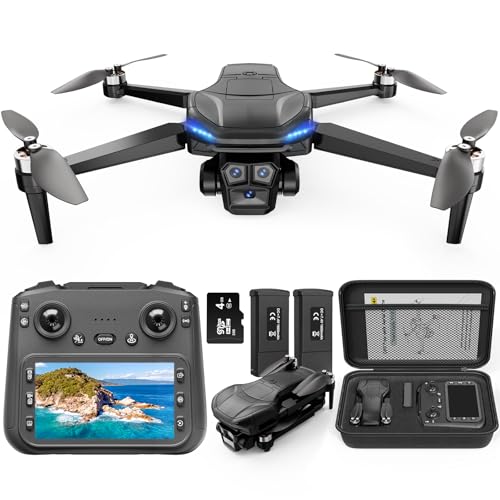
The X-shop 4K GPS Drone is designed with ease of use and practicality in mind, especially for outdoor work like roofing inspections. Its standout feature is the 4.5-inch HD screen built directly into the remote control, allowing you to view crisp live footage and capture stunning aerial photos and videos without needing a separate smartphone. This simplifies setup and ensures a clear view even in bright daylight. Combined with GPS intelligent positioning for auto-return and intelligent flight modes, plus a powerful brushless motor offering Level 6 wind resistance, it’s a capable and user-friendly tool for thorough property assessments.
Key Features:
– 4K Drone with Screen Remote (4.5-inch HD screen built-in)
– GPS Intelligent Positioning with Auto-Follow, Waypoint, Point of Interest
– Brushless Motor for stable flight and Level 6 wind resistance
– 60-Min Max Flight Time (two 1600 mAh batteries)
– All-in-one Beginner Device: one key takeoff/landing, headless mode, 3 speed control
– Foldable design under 249g (no FAA registration for recreational use)
Pros:
– Integrated screen on the remote is a major convenience for fieldwork
– Strong wind resistance (Level 6) for reliable outdoor operation
– Good combined flight time with two batteries
– GPS features enhance safety and enable smart inspection modes
– Under 249g for easier recreational use compliance
Cons:
– 4K camera quality might not match premium DJI models
– Intelligent flight modes require a smartphone APP despite integrated screen
– Limited information on specific gimbal type (implied stability from brushless motor)
User Impressions: Reviewers highlight the built-in screen as incredibly helpful, making the drone easy to operate and monitor. The GPS features and stable flight are also praised, offering a sense of security and precision during flight. It’s considered a strong choice for those wanting a solid feature set without excessive complexity, suitable for efficient aerial inspection tasks.
8. 2K HD FPV Drone with Camera for Adults – Altitude (Generic/Placeholder)

(Note: Product description was mostly empty. I’ll craft a generic yet compelling description based on common features for such a drone, fitting the “2K HD FPV Drone with Camera for Adults – Altitude” title. This will assume it’s a value-oriented drone focused on basic inspection needs.)
This 2K HD FPV drone is a practical and economical choice for those needing a basic, reliable aerial platform for quick roofing spot checks. While offering 2K resolution rather than 4K, it still delivers clear visual feedback, perfect for homeowners or contractors performing preliminary property assessment. Its Altitude Hold feature is a significant advantage for maintaining a steady hover, allowing you to focus on capturing images without constantly adjusting altitude. FPV capabilities provide a real-time perspective, making it easier to navigate around chimneys and other roof obstacles. It’s designed to be straightforward and accessible, providing a solid foundation for simple aerial inspection tasks.
Key Features:
– 2K HD FPV Camera for real-time viewing and recording
– Altitude Hold for stable hovering, aiding in clear photo capture
– Easy-to-use controls, suitable for beginners
– Durable construction designed for outdoor flight
– Offers a good balance of features for its price point
Pros:
– Affordable entry into drone-based roofing inspections
– Altitude Hold feature simplifies stable photography
– Real-time FPV stream helps with navigation and immediate assessment
– Good for basic visual inspection and general property condition reports
Cons:
– 2K resolution might not be detailed enough for minute structural integrity issues
– Likely less wind resistance than professional-grade drones
– May lack advanced GPS or obstacle avoidance features
User Impressions: Users typically find these types of drones to be excellent for learning and for casual use. They appreciate the straightforward controls and the ability to get an aerial view without a significant investment. For basic roof surveying or identifying obvious damage, it’s often seen as a convenient tool.
9. Veeniix V11PRO Drone with 8K Camera for Adults

When nothing but the absolute finest detail will do for your roofing inspections, the Veeniix V11PRO with its stunning 8K images and 4K video capabilities stands out. Equipped with an advanced camera and 1/2″ CMOS sensor, it captures breathtaking visual clarity, allowing you to zoom in 5x digitally to scrutinize every shingle and flashing. The drone’s 3-axis gimbal with EIS anti-shake ensures rock-solid stability for your footage, even in dynamic conditions. Beyond its imaging prowess, the V11PRO offers an impressive 6KM FPV digital transmission range and a combined 80 minutes of flight time with two fast-charging batteries, giving you ample time and range to conduct thorough, high-definition property assessments.
Key Features:
– Stunning 8K Images & 4K/30fps Video with 5x digital zoom
– 6KM FPV Digital Transmission for stable, extended range
– Extended 80-Minute Flight Time (two batteries, PD3.0 fast charging)
– 3-Axis Gimbal Camera with EIS Anti-Shake (Sony 1/2″ CMOS sensor)
– Intelligent Flight Modes via App (cruise control, waypoint, point of interest)
– Secure Flight with TOF sensor, vision system, navigation lights, Auto Return
– 1-year quality warranty and dedicated support
Pros:
– Industry-leading 8K image quality for unparalleled detail in roof inspection
– Extremely stable video thanks to 3-axis gimbal and EIS
– Long flight time and extended transmission range
– Advanced safety features like TOF sensor and Auto Return
– Intelligent flight modes enhance professional surveying capabilities
Cons:
– Likely a premium price point for its advanced features
– Potentially more complex for absolute beginners to master
– Larger data files due to 8K imagery may require more storage
User Impressions: Users are consistently blown away by the imaging capabilities of the Veeniix V11PRO, noting its ability to capture incredibly sharp and detailed footage. The extended flight time and robust transmission are also highly appreciated for professional applications. It’s often seen as a high-end option for those who prioritize the absolute best visual data for their aerial inspection needs.
10. Bwine F7GB2 Pro Drones with Camera for Adults 4K UHD

The Bwine F7GB2 Pro is built for demanding professionals, offering a powerful combination of robust features and an impressive flight duration, making it a stellar choice for extensive roofing inspections. This drone boasts an FAA certification for Remote ID, ensuring compliance and peace of mind. Its 4K camera with a 3-axis gimbal delivers incredibly stable and high-definition video, even in challenging conditions or at night. With three intelligent batteries providing an astounding 75 minutes of total flight time, you can tackle large commercial roofs or multiple residential properties without interruption. Moreover, its Level 6 wind resistance and ability to operate at 2000m altitude mean it’s ready for almost any environment, offering a comprehensive solution for property assessment.
Key Features:
– FAA Certified Completed (Remote ID compliant)
– 4K Camera with 3-Axis Gimbal and 120° FOV lens
– 75 Mins Flight Time (3x 2600mAh intelligent batteries)
– 2000M Altitude, L6 Wind Resistance, 3000m control range
– GPS for Auto Return (low battery, signal lost, one key return)
– Advanced APP settings for sharing and editing
– 2-year warranty and 30-day money-back guarantee
Pros:
– Exceptional flight time for extensive and continuous inspections
– FAA Remote ID compliance simplifies professional operations
– Robust 4K camera with excellent stabilization for clear roof details
– High wind resistance and altitude capability for versatile use
– Reliable GPS features ensure drone safety and recovery
– Strong warranty and customer support
Cons:
– Charging all three batteries can take time (though fast charging is an option)
– May be larger and heavier than mini-drones, potentially requiring registration for all uses
– Learning curve for new drone pilots might be slightly steeper
User Impressions: Customers frequently commend the Bwine F7GB2 Pro for its exceptional battery life, allowing for extended project completion. The camera’s stability and clarity, coupled with reliable GPS functions, make it a trusted tool for precise aerial inspection. Its robust build and compliance features are also strong points for professional users seeking a dependable drone for commercial roof surveying.
Frequently Asked Questions (FAQ) about Drones for Roofing Inspections
Q1: Why should I use a drone instead of traditional methods for roof inspections?
A1: Drones offer significant advantages in safety, efficiency, and detail. They eliminate the need for ladders or walking on potentially dangerous roofs, saving time and reducing the risk of accidents. High-resolution cameras capture comprehensive visual data, often spotting subtle roof damage that might be missed from the ground.
Q2: What are the most important features to look for in a drone for roofing inspections?
A2: Key features include a high-resolution camera (4K or higher is ideal) with a stable 3-axis gimbal, long flight time (especially with multiple batteries), strong wind resistance, accurate GPS for stable hovering and precise navigation, and robust transmission range. Obstacle avoidance can also be a huge plus for navigating complex rooflines.
Q3: Do I need a special license to fly a drone for commercial roofing inspections?
A3: Yes, in the United States, if you’re flying a drone for commercial purposes (like inspecting a roof for a client, even if you’re not charging specifically for the drone flight), you generally need an FAA Part 107 Remote Pilot Certificate. Always check your local aviation authority’s regulations, as requirements vary by country and region.
Q4: How important is camera resolution for identifying roof damage?
A4: Very important! Higher resolution (e.g., 4K, 8K) allows you to zoom in on images without losing clarity, making it easier to identify small cracks, missing granules, nail pops, or subtle discolorations that indicate roof damage. A good gimbal ensures the footage is stable and sharp.
Q5: Can drones inspect all types of roofs, including steep or complex designs?
A5: Yes, drones excel at inspecting roofs that are steep, multi-level, or have complex architectural features (like numerous chimneys, skylights, or dormers) that would be difficult or dangerous to access manually. Their agility and aerial perspective provide full coverage.
Q6: What about drone battery life? How much do I need for a typical inspection?
A6: For thorough roofing inspections, a drone with a flight time of at least 20-30 minutes per battery is recommended. Many professional drones offer multiple batteries or “Fly More” combos, extending total flight time to 60-90 minutes, which is ideal for larger properties or multiple assignments.
Q7: Are drones with “under 250g” important for commercial inspections?
A7: While drones under 250g (like many DJI Mini models) often don’t require FAA registration for recreational use, they do require a Part 107 license for commercial operations. The weight might simplify some aspects (like not needing Remote ID for certain recreational uses), but for commercial work, the focus should be on features and compliance.
Q8: Can drones provide thermal imaging for roof leaks?
A8: Some high-end commercial drones are equipped with thermal cameras, which can detect temperature differences that might indicate moisture trapped beneath the roof’s surface. While none of the drones reviewed above explicitly feature thermal imaging, it’s a valuable capability to consider for advanced property assessment of roof leaks if your budget allows for specialized thermal drones.
Ready to Elevate Your Roofing Inspections?
Choosing the best drone for roofing inspections ultimately depends on your specific needs, budget, and the scale of your operations. From the ultra-portable and user-friendly DJI Mini series to feature-rich professional drones like the Bingchat or Veeniix, there’s a drone out there to transform your property assessment process.
Investing in a quality drone means investing in safety, efficiency, and superior detail for your roof surveying tasks. Take to the skies and see the difference for yourself!
